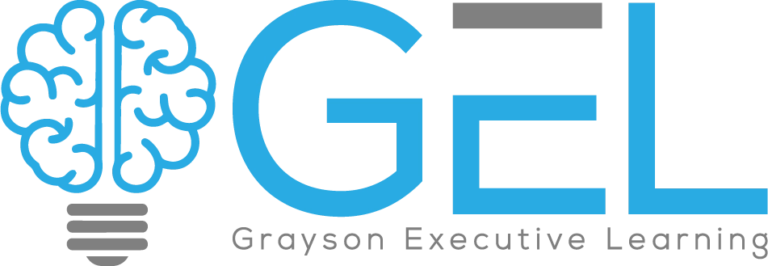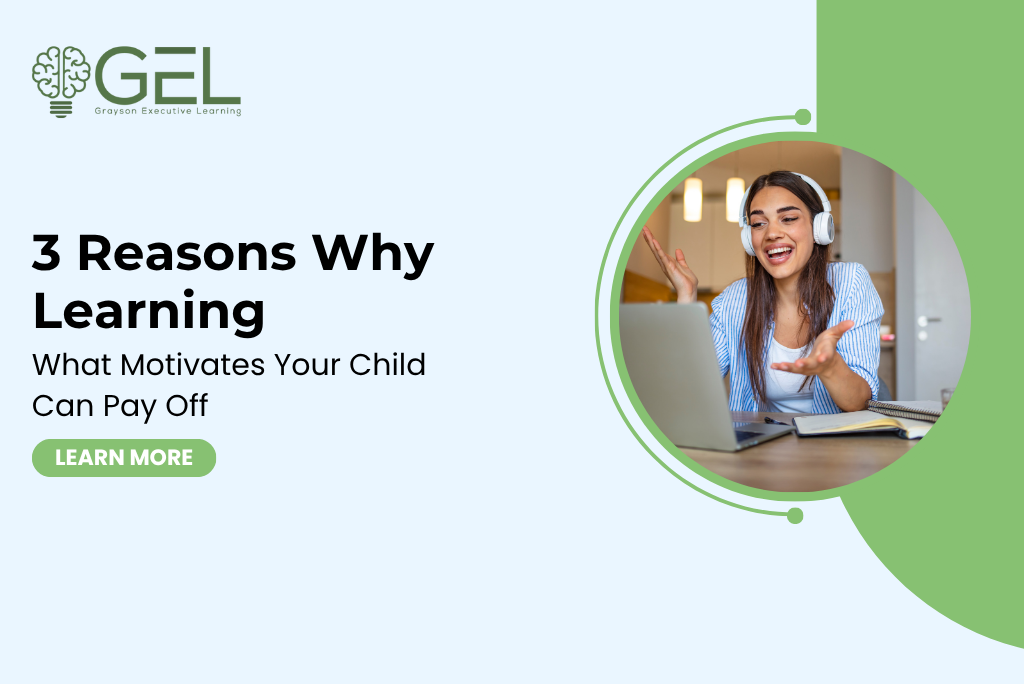As a parent, you want to see your child thrive both academically and personally. But when they seem unmotivated, easily distracted, or resistant to help, it can feel frustrating and even confusing. Especially for students with ADHD or executive function challenges, lack of motivation is often misunderstood. It’s not laziness or defiance. It’s often about not knowing how to start, stay focused, or connect their tasks with something meaningful.
Grayson Executive Learning coaches work with many students who want to succeed but feel stuck. One of the most effective tools we use is helping students tap into why they do what they do. Motivation isn’t just about rewards or punishment. It’s about discovering internal drivers that lead to confidence, ownership, and follow-through.
Here are three compelling reasons why learning what motivates your child can make a lasting impact.
Motivation Boosts Executive Function and Goal Completion
When students understand their personal drivers, they are more likely to initiate tasks and follow through. Research shows that students who connect academic tasks with personal interests demonstrate stronger persistence and greater academic success. According to the CDC, students with ADHD are more likely to struggle with task initiation, sustained attention, and goal-directed behavior, especially when tasks feel irrelevant or overwhelming.
But motivation changes that equation.
For example, a teen who loves animals might be more willing to complete writing assignments if the topic involves wildlife rescue. A student interested in entrepreneurship might stay focused when learning math through budgeting or business projects. When students see value in what they’re doing, the brain releases dopamine, which fuels attention and effort.
Coaching can help uncover those intrinsic motivators and reframe tasks as meaningful. This turns “I have to” into “I want to.”
Self-Knowledge Leads to Better Habits and Self-Regulation
Understanding what motivates your child also helps them regulate emotions and behaviors more effectively. Students who feel empowered by their interests are more likely to create routines that support their goals.
For example, a student who wants to pursue graphic design may learn to manage time better so they can balance school with passion projects. A high school athlete may work harder in class when they understand how academic eligibility affects their sport.
In one recent GEL coaching case, a student who previously avoided homework discovered they were driven by independence and problem-solving. With that insight, we helped them structure a personalized routine that made them feel more in control. Over time, that student went from daily homework battles to consistent follow-through. Motivation gave meaning to the process.
This isn’t just anecdotal. A study from the American Psychological Association notes that students who set personal goals and see relevance in their schoolwork are more likely to persist through challenges and less likely to burn out.
Long-Term Success Depends on Meaningful Motivation
Motivation is a key predictor of lifelong success. The World Economic Forum lists self-motivation and emotional intelligence among the top soft skills required for future careers. Students who understand their “why” are more prepared to adapt, self-advocate, and lead with confidence.
Teens who work with Grayson Executive Learning coaches don’t just build academic skills. They learn how to reflect on what excites them, what frustrates them, and how they want to grow. These are essential skills for college, career, and life.
In fact, one survey by YouthTruth found that less than 50 percent of high school students feel engaged in school. But those who felt their schoolwork was meaningful were more than twice as likely to report high motivation and effort.
When students can connect their values to their daily choices, everything shifts. They stop asking, “What’s the point?” and start asking, “How can I make this count?”
Final Thoughts: Motivation Builds More Than Momentum
Helping your child discover what motivates them is one of the most powerful gifts you can offer. It helps them take ownership of their learning, build emotional resilience, and develop routines that stick.
If your student struggles with procrastination, disorganization, or lack of focus, the root cause may not be a skill deficit but a missing sense of purpose. And that’s where coaching can help.
How Can GEL Help Students Develop Executive Function?
Grayson Executive Learning (GEL) is a boutique Academic and ADHD/Executive Function Coaching practice that specializes in providing premium one-on-one academic coaching services to high school and college students with ADHD and executive function difficulties.
Click here to learn how we can help your student truly reach their academic potential while developing critical life and independence skills.
We look forward to serving you.


